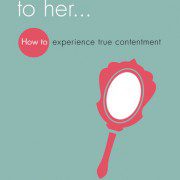Crazy Rich Asians: The One Struggle We All Have in Common
Screenshot taken from Official Trailer
Rating: 4 out of 5
“Why are you watching that bimbo show?” A friend of mine asked incredulously, when I told her that I was going to catch the sneak preview of Crazy Rich Asians, which had finally opened in my country, Singapore, earlier this week after much hype.
“Well, I like bimbo shows,” I replied with a grin. Of course, I could have argued that this was no “bimbo” movie, but a “movement”—in the words of the movie’s director, Jon M. Chu. Even before the show was officially released, much was written and said about how Crazy Rich Asians is a watershed moment for Asian representation on the big screen: it is the first Hollywood movie to feature an all-Asian cast 25 years after Joy Luck Club.
Or I could have expounded on the need for us as proud Singaporeans to throw our weight behind a show that featured our little red dot in all its splendor and glory. After all, how many movies are there in Hollywood that mention our city-state, much less, choose Singapore as their main film location?
I could have also highlighted how well the movie had performed at the US box office over its opening weekend, raking in over US$35 million and coming in at number one.
But the truth was, I had simply read Kevin Kwan’s book earlier this year and was excited to see how the rom-com would play out on the big screen against sights and sounds I was familiar with.
It is a tale as old as time, albeit with an all-Asian cast twist: a guy falls in love with a girl and brings her home to meet his parents. The only catch is that Singaporean Nick Young (played by Henry Golding) is from one of the richest families in the island-city and his Asian-American Economics professor girlfriend, Rachel Chu (played by Constance Wu) doesn’t have a clue about it. Unsurprisingly, drama ensues the moment they set foot in the Young household and our female protagonist finds herself the target of almost everyone in the Young family—especially Nick’s mother, Eleanor Young (played by Michelle Yeoh)—who thinks she’s not good enough for her son.
As my friends and I took our seats in the cinema, it was apparent that we were not the only ones ready to be entertained. Around us, young and old, Singaporean and non-Singaporeans, Asians and non-Asians, filled the packed theater and had come with food and drinks as well. The excitement in the theater was palpable and the atmosphere boisterous. It was as though everyone knew this was a movie of significance to Singapore (not only was it shot in Singapore, it involved 297 Singaporeans or permanent residents as production crew members, and 12 home-grown names in the cast itself), and we all really wanted to like it.
True enough, the movie did entertain. People laughed, cried, and even gasped at all the right junctures. And as the credits rolled, a round of applause resounded in the theater; the movie had lived up to expectation. Though most (if not all) of us were neither crazy nor rich, something in the movie had definitely struck a chord. And I suspect it wasn’t just the Singlish, nailed effortlessly by Singaporean actress Koh Chieng Mun (who plays the mother of Peik Lin, Rachel’s good friend).
Beyond the perfectly coiffed hair, impeccable make-up, gorgeous landscapes and outfits, the show surfaced an inherent human trait in its main characters that transcends socioeconomic status, lineage, and cultures: self-worth. Yes, apparently even the crazy rich struggle with it (some spoilers ahead).
For female lead Rachel, you could even say that her bigger story is about finding where her worth really lies, as she grapples with gaining acceptance in the ridiculously rich Young family, especially from Nick’s steely and imposing mother who tells her to her face that she will “never be enough”.
Or you might feel sympathy or chagrin towards Michael Teo (played by Singaporean actor Pierre Png), the hot-and-cold husband of Nick’s cousin, Astrid Leong (played by Gemma Chan), who can’t seem to break out of feeling second class among the Young family despite his dashing good looks and impressive military achievements (which are elaborated on in the book).
Even the doyenne herself, Eleanor, reveals to Rachel at one point that she herself hadn’t been the first or even second choice of Nick’s grandmother, who jumps on every opportunity to remind her that everything she does isn’t good enough. And so she tries to establish her worth through Nick, by letting him stay with his grandmother so that he can gain her affection.
If there’s one thing that the movie does a great job portraying, it’s that rich or poor, handsome or plain-looking, clever or mediocre, we all have moments where we doubt our worth. Yet even as we struggle within, like Eleanor Young, we seem to use these very same characteristics to lord it over others and say or do things (whether intentionally or not) that make others question their worth as well.
But beauty is fleeting, and so is our wealth and intellect. If we anchor our self-worth in these things, we will ultimately become highly insecure and judgmental beings, our confidence tossed to and fro by the changing standards of the world.
That’s where the beauty of the gospel comes in. In the eyes of God, we are all truly “not good enough”, but not because we’re not from a good family, don’t have a good job or the perfect features. It’s because we have rejected God and chosen to live our lives our own way. Yet, while we were still rebelling against Him, God sent His son, Jesus, to die for us—to make us “good enough” out of His love for us (John 3:16).
Now that is a game changer. Because our worth, regardless of our lineage or achievements, is fully intact as a result of Christ’s finished work on the cross. This means that as children of God and co-heirs with Christ, we should no longer worry about establishing our worth or judging others, but focus on living for the One who gave it to us (Romans 8:14-17).
And what that looks like practically is summed up succinctly in the passage Eleanor reads out from Colossians 3 in that especially ironic scene where she is having a bible study with her sisters:
Since, then, you have been raised with Christ, set your hearts on things above, where Christ is, seated at the right hand of God. Set your minds on things above, not on earthly things. For you died, and your life is now hidden with Christ in God. When Christ, who is your life, appears, then you also will appear with him in glory. (Colossians 3:1-4)
Will we shake off the baggage in our lives—opulent or not—and turn our eyes to things that truly matter, and last?










most of the shooting location are in Malaysia..